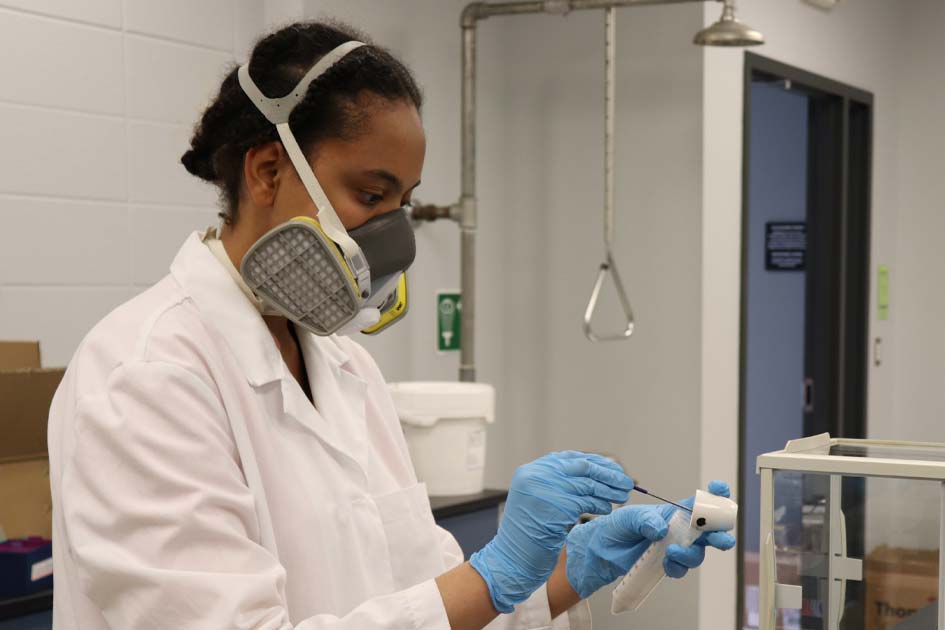DSU Full of Opportunities and Experience
September 18, 2020

As she enters her second year, Christina Mulu has found that opportunities and experiences abound at Dakota State.
Mulu, an international student from Ethiopia, chose to attend DSU after being inspired by Dakota State’s emphasis on IT-related majors, small size that allows for high engagement on campus, and affordability.
As a freshman, she got accustomed to college life with the help of Nicole Claussen and Amber Alfson in the International Programs office. She also participated in scientific research and joined a variety of activities.
Mulu is a member of the Computer Club, CybHER Club, and joined the Photography Club and Business Club this year. Her participation in on-campus activities has been positive.
“Most of my memorable moments are when I got to know wonderful people on campus,” she said. “I can’t pin down one memory, but I would say hanging out with my friends off campus, working on campus, and being involved in clubs is among the list.”
Mulu is a computer science and math double major with a chemistry minor. She has always been interested in interpreting scientific data that requires computational capabilities.
“Although computer science was my hobby at first, I developed an interest in becoming an IT person in this technological world,” she said. “I also believe that it will be a unique tool for my future studies in the physical sciences.”
Over the summer, Mulu was one of six students participating in the National Science Foundation’s Established Program to Stimulate Competitive Research (EPSCoR) program. Mulu worked with three other students under the leadership of Dr. Michael Gaylor, associate research professor of chemistry, to conduct astrobiology research.
The group studied chemical compounds and minerals found throughout the solar system that, in certain planetary environments, undergo chemical reactions that produce molecules essential for life.
Gaylor’s team discovered that chemicals known as polycyclic aromatic hydrocarbons – found on Earth and Mars and elsewhere in the solar system – undergo chemical reactions in the presence of minerals common on both planets to produce chemicals known as quinones, which are essential for all life on Earth. Working with collaborators at NASA’s Jet Propulsion Lab and the Astrobiology Institute of Colombia, the team’s larger goal is to use these findings to develop methods to determine whether these same chemical reactions are happening on Mars as possible indicators of past or present life on that planet.
Mulu is thankful for the support she’s received from Dr. Gaylor inside and outside of the classroom. “He helped me gain exposure to research so early in my studies,” she said.
Upon completing her undergraduate degrees, Mulu hopes to pursue graduate studies in chemistry and work as a data scientist.
